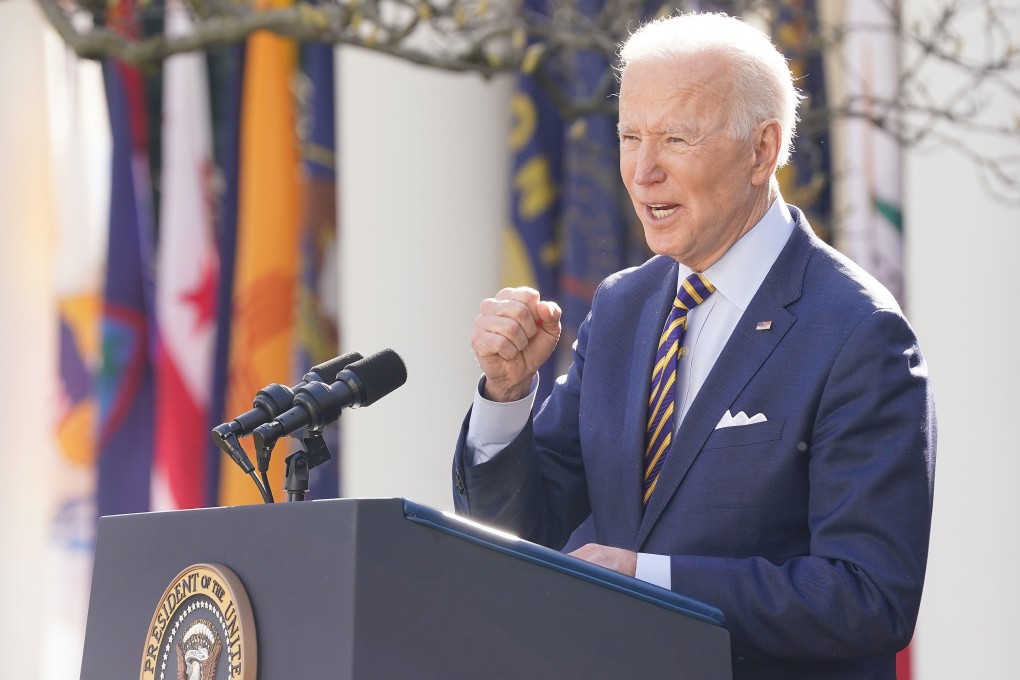Advertisement
American Rescue Plan: China’s exports set for US$60 billion boost from ‘rampant US demand’
- Chinese exports are likely to increase by US$60 billion over 2021-22 as Americans snap up computers, household equipment and clothing flush with US$1,400 stimulus cheques
- The American Rescue Plan could increase China’s gross domestic product (GDP) by 0.5 per cent over the next year, according to the Organisation for Economic Co-operation and Development
Reading Time:3 minutes
Why you can trust SCMP
20

David Ni is expecting a great year for his Chinese car-wheels business, thanks to the US$1.9 trillion boost President Joe Biden just gave to the US economy.
Americans flush with US$1,400 stimulus cheques mean “demand in the US is rampant,” said Ni, whose Jiangsu Siborui Import and Export, headquartered in Nanjing, buys high-end aluminium alloy car wheels from Chinese producers and sells them to retailers in the United States.
“Citizens get cash and they jump into shopping,” he said, predicting his sales will surge by more than 30 per cent this year.
Advertisement
The US fiscal boost will bring huge spillovers for the global economy, especially China, the world’s biggest exporter. Around US$360 billion of the stimulus package will be spent on imports, according to Allianz SE, with Chinese exports likely to increase by US$60 billion over 2021-22 as Americans snap up computers, household equipment and clothing.
But it also means rising prices for Chinese-made goods that have already started to tick up and a possible worsening in tensions with the US over trade imbalances.
Advertisement
Advertisement
Select Voice
Select Speed
1.00x